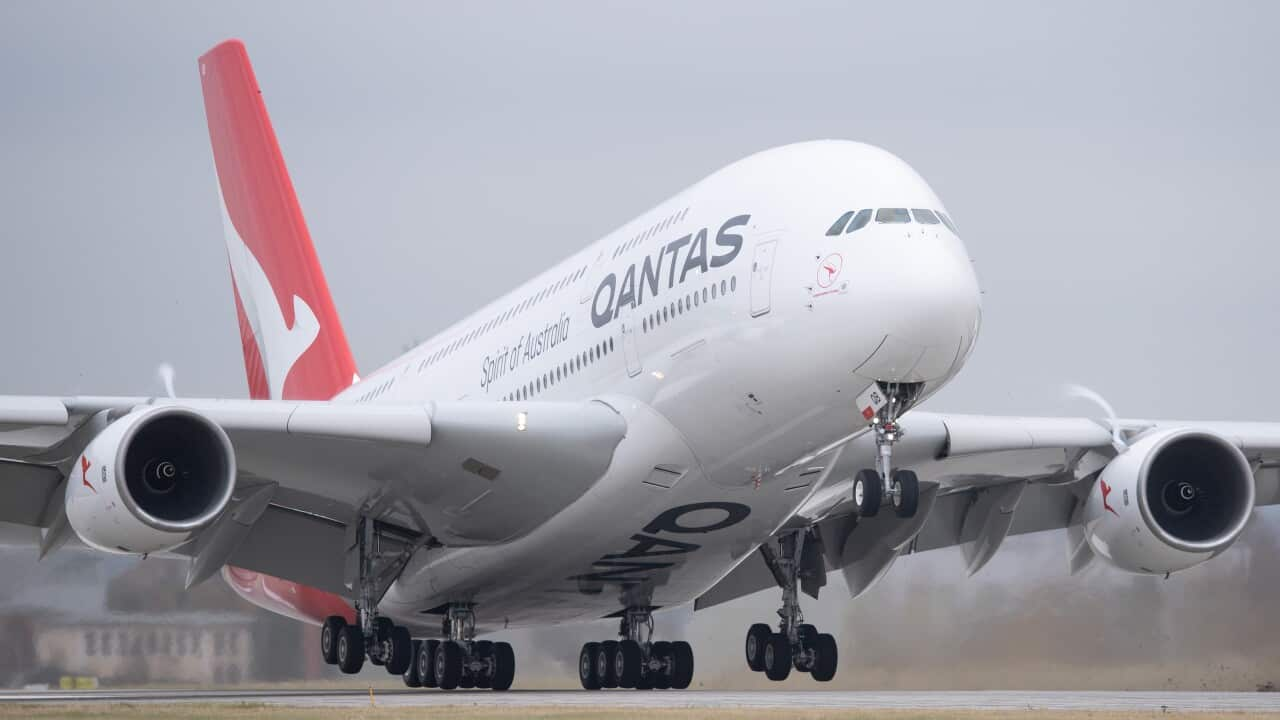Key Points
- The white paper makes 56 recommendations, including the establishment of an Aviation Industry Ombudsman Scheme.
- A customer rights charter would also be set up to provide a baseline for service passengers can expect on flights.
- New aviation standards for disability will be put in place, as well.
Plane passengers could soon be entitled to compensation or refunds for delayed or cancelled flights in Australia.
Stronger consumer protections were among 56 recommendations in the federal government's Aviation White Paper released on Monday, providing a blueprint for the sector to 2050.
The white paper recommended setting up an Aviation Industry Ombudsman Scheme, which will have powers to compel airlines to provide support to passengers and give travellers more rights.
An interim ombudsman will be appointed before legislation is introduced in 2025.
In 2023, about a third of flights failed to leave on time, while 3.7 per cent — roughly 16,000 flights — were cancelled, according to a report from the Bureau of Infrastructure and Transport Research Economics.
An Aviation Customer Rights Charter will also be set up to provide a baseline for service passengers can expect on flights.
Airlines will also be forced to explain the reasons its flights were cancelled or delayed.
Infrastructure Minister Catherine King said the changes were critical to ensure passengers had better experiences in the air.
"The aviation customer experience has deteriorated post-COVID, with an urgent need to better protect the rights of the travelling public," she said.

Transport Minister Catherine King said the changes were critical to ensure passengers had better experiences in the air. Source: AAP / Lukas Coch
Major airlines such as Qantas and Virgin Australia have also come under fire for having an entrenched duopoly in domestic routes.
The white paper said steps would be taken to address concerns about aviation competition.
Incentives would be reduced for anti-competitive misuse of slots at major airports.
"Historically, it has been challenging for the Australian aviation market to accommodate a third major carrier," the white paper said.
"Despite these setbacks, ongoing population and market growth, combined with structural increases in capacity in (Brisbane, Sydney and Melbourne routes), could still create future opportunities for new carriers to scale up operations."
The white paper also made recommendations to review policies that limited the number of people on flights who need assistance for disabilities.
New aviation standards for disability would be put in place, with increased compensation also given to people who have had wheelchairs or other devices damaged while travelling on flights.
A review would also be carried out to determine how regional services would be improved.
Recommendations also include setting up a new ombudsman on aircraft noise, as well as improvements to transparency about the noise impacts from flights.
Work will also be carried out on airspace reform, following the increased use of other aircraft such as drones.
"The use of emerging aviation technology ... will result in a significant increase in aircraft movements and change the way passengers and freight move within Australia," the white paper said.











